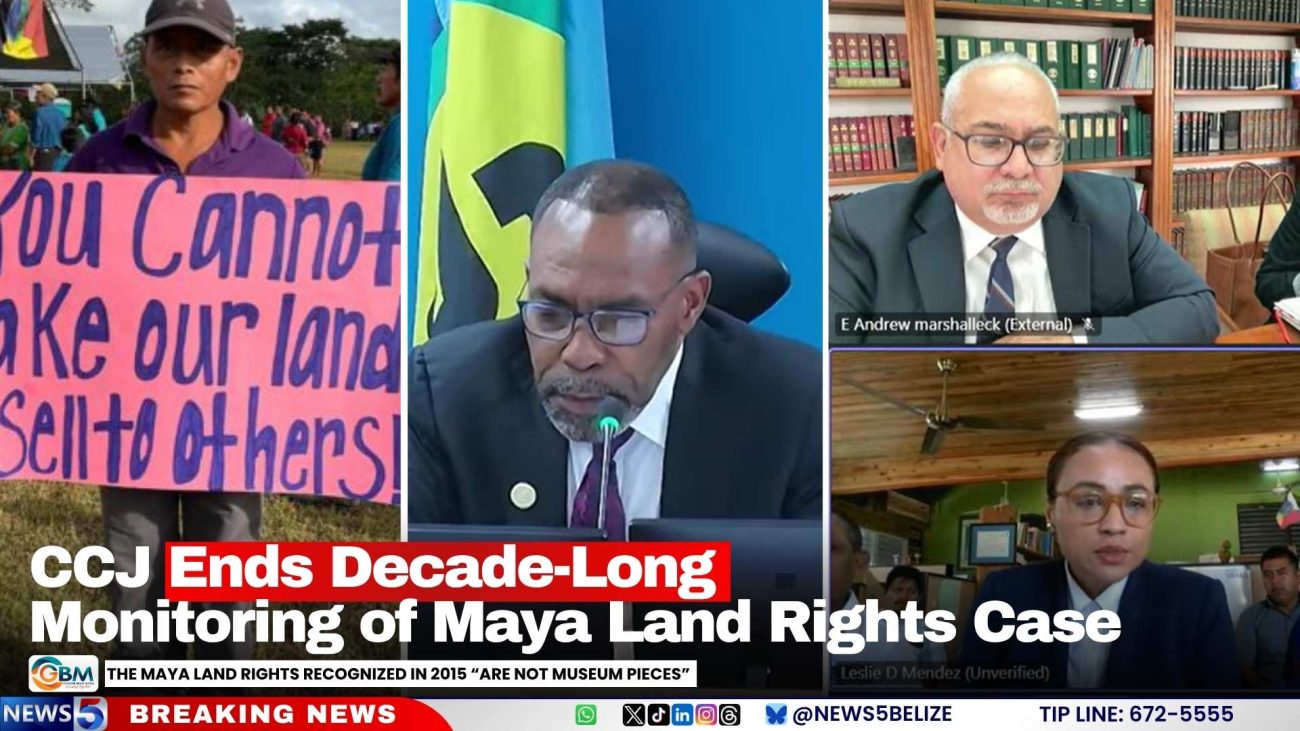CCJ Ends Decade-Long Monitoring of Maya Land Rights Case
The long-running legal process to secure Maya land rights has reached a new stage. The Caribbean Court of Justice (CCJ) has formally closed its 10-year monitoring role over the implementation of the 2015 Consent Order, which recognised the land rights of Belize’s indigenous Maya people.
The order, signed between the Maya Leaders Alliance and the Attorney General, required the government to establish mechanisms to protect customary land tenure in southern Belize.
During the court’s final compliance hearing, attorney for the Maya communities, Leslie Mendez, expressed disappointment at the government’s handling of the process. She said the Maya have acted in the “highest degree of good faith” throughout the decade but accused the government of continuing to deny their rights.
“Today, 10 years later, we feel regretful to say we have not seen a different outcome, much less a meaningful one. We continue to be met with a recalcitrant government who dragged us through this long process, consistently acting in bad faith only at the insistence of this honourable court accepting to receive our inputs, but in the end only to turn around and reject any considerations of our views and contributions. It demonstrates that this government does not care about Belize’s indigenous peoples and is hellbent on continuing to deny us our rights,” Mendez said.
Representing the Government of Belize, attorney Andrew Marshalleck defended the state’s approach, stating that the process has been lengthy due to the complexity of balancing competing interests. He said the proposed legislation “is not perfect, but it is a good faith effort to make land available to the Maya of Southern Belize and preserve their way of life” while also ensuring space for “Belizeans of other ethnicities.”
Marshalleck added that the decade-long process reflected the “fundamental difficulties” of finding a “happy solution in a land dispute between Belizean brothers and sisters.”
“That happy solution has not surprisingly proven elusive,” Marshalleck added.
Closing the hearing, Justice Winston Anderson said the court was satisfied that “the core elements of implementation have taken root” and that the CCJ’s supervisory role had “achieved its purpose.”
He reminded both parties that the Maya land rights recognized in 2015 “are not museum pieces, but tools for dignity, development, and peaceful coexistence.”






Facebook Comments